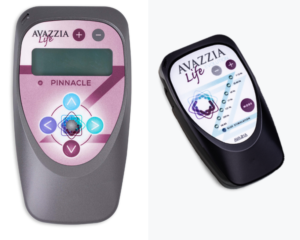
Mentally adjusting to a chronic pain condition can be an overwhelming struggle. After all, you didn’t ask for this. Some days, it may even feel as though chronic pain has taken center stage in every aspect of your life, undermining your joy and peace of mind. And if you live with chronic pain, you understand how taxing it can be on not only your body but your mind as well.
If you’re one of the chronic pain patients that experience comorbid anxiety, stress, depression, or mental illnesses, the good news is, you don’t have to live this way. YOU have a say in the matter. With our simple coping strategies, you can get in front of pain-related mental struggles to foster the ideal environment for your body to heal. Read on to learn how.
Learn About the Science of Pain Management
If you’ve been diagnosed with a chronic pain condition, you might first hop on the internet and do your research. And good on you for that! Understanding the science of pain management will be the first step in feeling like you actually have some level of control over the situation – because you do!
But be careful where you source your information. You will want to seek a reputable resource for ideas on managing your chronic pain in the long term that aligns with your values, goals, and lifestyle. While researching pain management options, you will encounter conventional treatments (including addictive opioids, invasive surgeries, and long recovery times). Conversely, you may come across holistic approaches to pain management, like Traditional Chinese Medicine and our holistic blueprint for pain resolution, The Hache Protocol For Pain Resolution™.
How You Talk About Chronic Pain Affects Your Healing
How you regard your chronic pain experience will become one of the most significant predictors of whether you’ll ever overcome it or not. We’re not talking about “toxic positivity” here. Instead, we’re talking about achieving acceptance and being at peace with that. A 2011 Cornell University study found that your outlook on life can minimize – or aggravate – chronic pain.
See, using combative language to talk about your health can cause you to slip into fight or flight mode—and if you’ve been reading our blog, you know it’s almost impossible to heal when your body is in fight or flight or a sympathetic state. Chronic illness and pain are a journey to be bravely traveled, not a battle to be waged and won (or lost). Once you take winning out of the equation, “losing” becomes impossible by default.
The bottom line is this: chronic illness isn’t something to either win or lose. Overcoming chronic pain is more about managing your symptoms and adjusting your lifestyle to accommodate your body in the here and now until deeper healing can occur.
- To learn more about how to reframe how you mentally cope with your chronic pain journey and receive 18 affirmations for chronic pain and illness, please read our blog post, How We Talk About Chronic Conditions Affects Healing.
Self-Care for Pain Management: Fill Your Cup
“You can’t pour from an empty cup, be sure to take care of yourself first.”
—Anonymous
Think of all those lovely things that make life feel like a treat and brainstorm how you can maximize their role in your life! There’s nothing better than a healthy homemade meal with the family for some. For others sleeping in until 10 am on the weekend is the best feeling in the world. When you’re living with chronic pain, it’s all about filling your cup with whatever makes you happy.
Self-care can look like mindfulness, giving back, sleeping in, getting outside, eating healthy, or simply taking the dog for a walk. We can’t tell you what your body needs to feel cared for. Instead, we recommend looking inward and taking note of the things that spark joy in your life. Once you’ve identified these things are, it’s time to figure out how to recenter your day-to-day life around what makes you tick.
Having trouble connecting with yourself? We recommend embarking upon a forest bathing adventure to contemplate your relationship with chronic pain and what you can do about it. Forest bathing is believed to:
- Reduce stress hormones like cortisol
- Improve immunity
- Increase empathy
- Increase parasympathetic nerve activity (fostering a greater sense of wellbeing)
- Increase sleep quality
- lower blood pressure
And more!
Self-Care How To: 4 Mental Health Coping Strategies (Hache Protocol™ Approved)

Now that you understand how vital self-care can be in overcoming chronic pain, you may be looking for simple coping strategies. In that case, please explore some of our favorite Hache Protocol™ approved ways to integrate self-care into your routine today:
Better nutrition. Eat the wrong foods, and you could be in a world of hurt. Refined sugar, for example, is the fuel that fans the fires of inflammation. On the other hand, tons of delicious spices help keep pain and inflammation at bay. Below, you will find previous blogs that talk about diet and how it affects both your mental and physical wellbeing:
- Intuitively Eating for Health
- Enjoy Holiday Flavors Without Triggering Inflammation
- Top 4 Inflammation Flare-Up Foods to Avoid
Quality Sleep. Good sleep isn’t a luxury anymore. These days, quality rest is a MUST to beat stress and stay healthy. This is because our brains go through vital reorganization and detoxification processes as we rest. And don’t forget about the shocking connection between insomnia and increased chronic pain found by . Learn more by exploring our previous posts on natural sleep aids and more below:
Gentle Exercise. A new report has found that exercise plays a vital role in mental health and wellbeing. But for those in pain, exercising can pose quite that challenge. Luckily, we have compiled an extensive collection of gentle exercises that’ll work to keep your brain and body in great shape without riling up existing pain. Read them below:
Cut Stress With Healthy Distractions. Simply put, distracting yourself from pain is a suitable way to cope with the mental load. But don’t resort to unhealthy distractions like alcohol, smoking, or maxing out your bank account at the mall. Instead, distract yourself with things like a funny movie, a visit with a loved one, a walk with the dog, or a change of scenery. If you’re crafty, art therapy may be a great distraction to employ. Healthy distractions will help to cut down on stress and rumination.
Microcurrent for Mental Health
Suppose you’re already using a microcurrent device like our Avazzia Life Pinnacle, or Avazzia Life Evolution, to tackle the root cause of your chronic pain. In that case, you’re in a great position to start using microcurrent for mental health as well.
We’ve written extensively about using microcurrent therapy for improving mental wellbeing. Please review the blog posts below to discover some new ideas on where to start:
- Trigeminal Stimulation for Anxiety, Stress, Depression, and More
- Mental Health Coping Strategies During the Coronavirus
- Polyvagal Theory and Vagus Nerve Stimulation(contains two microcurrent protocols)
Join a Supportive Community of Likeminded Individuals
Talking about your chronic pain can help you to better process it – it helps remove all the weight off your shoulders. If you don’t have anyone in your life that understands, it’s vital to seek out a supportive community of people who do. And with the internet, there’s no excuse to suffer alone. Join our free Pain Free For Life Support Group on Facebook to connect with those who can encourage, uplift, and support you in an understanding way. Our group is a judgment-free zone designed to foster genuine connections, and present exciting solutions to chronic pain, mental health issues, autoimmune disease – and the list goes on.






